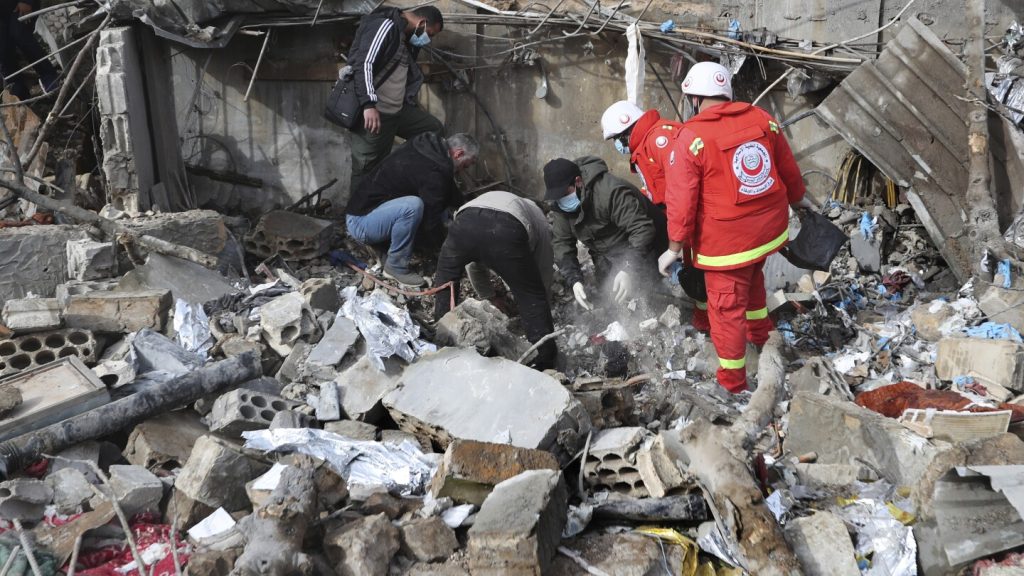Deadly clashes along the Israel-Lebanon border have resulted in the deaths of 16 people in Lebanon and one Israeli man, marking the deadliest day in more than five months of fighting. The Israeli airstrikes targeted a Lebanese Sunni political and militant organization, the Islamic Group, which has aligned itself with Hezbollah in its fight against Israel. Two Hezbollah fighters and a local commander with the Amal Movement were also killed in the strikes. The violence comes amid growing concerns of further escalation along the border following the Israel-Hamas war in Gaza, which has displaced tens of thousands of people on both sides.
The first Israeli airstrike hit a paramedic center affiliated with the Islamic Group, killing seven members in the village of Hebbariye. The head of the Emergency and Relief Corps, Muheddine Qarhani, expressed surprise that a medical group had been targeted. Israel stated that its airstrikes were aimed at eliminating Islamic Group members involved in attacks against Israel, as well as other militants. Maj. Gen. Ori Gordin of the Israeli army’s Northern Command emphasized that Israel was at war and conducting significant strikes against Hezbollah in addition to the Islamic Group. Hezbollah retaliated by firing rockets into the Israeli city of Kiryat Shmona and a military base.
Rescue services in Israel reported the death of a 25-year-old man in Kiryat Shmona due to a direct hit that sparked a fire in an industrial park. Around 30 rockets were launched from Lebanon into northern Israel, causing damage and injuries. In Lebanon, airstrikes by Israel in the village of Teir Harfa and the coastal town of Naqoura resulted in the deaths of nine people, including paramedics from Hezbollah’s Islamic Health Society and the Islamic Risala Scout Association. The Amal movement also suffered a loss with the death of one of its local commanders in Lebanon. The violence has led to a total of nine civilians and 11 soldiers killed in Israel, and around 240 Hezbollah fighters and 40 civilians dead in Lebanon.
The ongoing clashes have mostly remained confined to the border area, with international mediators working to prevent a full-scale war. The recent escalation of violence between Israel and Lebanon comes in the aftermath of the conflict between Israel and Hamas in Gaza, which began when Hamas militants launched a surprise attack in southern Israel. The situation remains tense, with fears of further casualties and displacement on both sides. International attention is focused on preventing further escalation and finding a path to de-escalation in the region. The conflict highlights the complex and volatile nature of the Middle East, where longstanding tensions and conflicts continue to flare up with devastating consequences.


